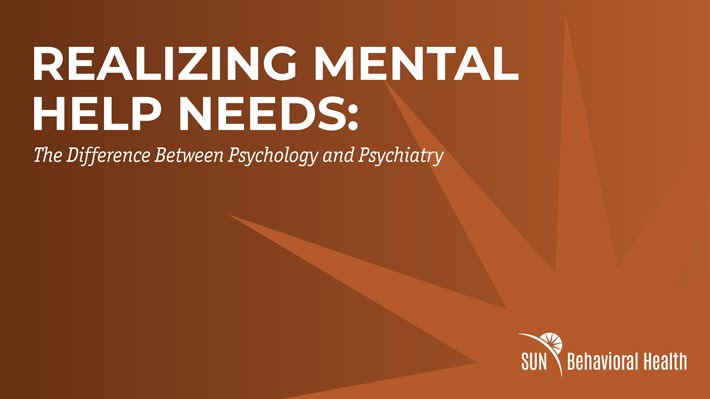Services
- Home
- Mental Health Services
- Who We Treat
- How We Treat
- Patients & Visitors
- About
close

It starts by recognizing this. You need help. More specifically, professional mental help.
You or someone you love are struggling with mental well-being, and it is now feeling like a crisis.
In this state of mind, the snowfall of questions in your brain goes from a lazy flurry to a full-on blizzard of questions.
Mental illness is common worldwide as well as in the United States. Annually, 1 in 5 Americans will experience a mental illness, and more than half the population will be diagnosed with a disorder in their lifetime, according to the Centers for Disease Control and Prevention.
Adults and children, men and women, rich and poor—mental health does not discriminate.
Neither does geography. In Harris County alone, 12% of Houston adults will experience mental distress this year. For children, in order of prevalence, attention-deficit/hyperactivity disorder (ADHD), behavioral disorder, anxiety, and depression are the most commonly experienced, and 1 in 4 children suffer from a mental disorder.
Many things can be behind a mental condition. Society has often assigned a stigma of weakness in character as a cause, which is blatantly inaccurate and based on ignorance of proven science. As more people move beyond this old-fashioned approach and gain coping skills and improved health, the stigma will lessen.
External factors such as job stress or an ailing family member can cause mental duress. Internal factors such as genetics, unchecked childhood stress, or a medical chemical imbalance can be a cause.
Just realizing you need mental help and support is a big first step. A mental health condition, if left unresolved, can lead to adverse physical effects caused by stress left unchecked, or other conditions such as substance use disorder as a person struggles to manage their symptoms by self-medication.
Determining what TYPE of help is needed is the second step. Do you need a psychologist, a psychiatrist, or both? Here is a guide to navigating the right mental needs that are best for you at this point in time.

The primary difference between a psychologist and a psychiatrist is that a psychiatrist may prescribe medications to treat mental disorders. Both professionals may diagnose a mental health condition.
A psychiatrist is a licensed medical doctor who has completed undergraduate school, four years of medical school, a one-year internship working with general medical situations, and an additional three years of psychiatric residency. They are fully trained in the diagnosis, treatment, and prevention of mental disorders. Before prescribing a course of medication administration, they examine the patient’s presentation of symptoms, mental state, and understanding of possible interactions with other medications that may be taken.
Patients on a regular schedule will make appointments that often coincide with the timing of prescriptions. Visits tend to last one hour and the overall effectiveness, side effects, and general response and maintenance, improvements, or worsening of conditions will be discussed. An adjustment may be made in the dosage or type of medication.
Psychiatrists will go into private practice for their career or on staff in hospitals or psychiatric treatment facilities.

They may specialize in specific disorders such as
Oftentimes, a psychologist and psychiatrist work in conjunction to provide comprehensive medical care for a patient. Through their individual meetings with a patient, they can share observations to work in synchrony and provide adjustments.
Medication is not the only course of treatment available for someone’s mental needs. A psychologist is available to provide talk therapy. There are quite a few different tracks to practice psychology and multiple modalities available to treat a variety of mental disorders.
Psychologists typically receive their master’s degree in two years or may choose to move further in their education for a doctoral degree requiring several more years of study. Clinical study work is then completed on a supervised basis with real-life experience and feedback.
Similar to psychiatrists, psychologists may specialize in a track of specific interest such as
Psychologists may open a clinical practice or work on-staff for a clinic, hospital, school, nursing home, government agency, the military, or substance or behavioral health treatment center.
Psychiatrists are trained to diagnose patients based on several variables:
Their observations and eventual diagnosis are based on direction provided by the Diagnostic and Statistical Manual for Mental Disorders, first published in 1952 by the American Psychiatry Association, now in its fifth edition (DSM-5).
Available courses of treatment
A psychiatrist may administer behavioral therapy but will often refer a patient to a psychologist for this part of their care.
Psychologists practice behavioral therapy via various options:
They may employ the following, or a multitude of modalities such as

There is much to be gained through help from psychological and psychiatric care.
Professional insight into a person’s thoughts and behaviors can provide tremendous support for improved quality of life.

Finding the hope you need to improve your life may seem intimidating or exhausting, and SUN Behavioral Houston fully understands that. We work with communities to solve the unmet needs of our clients and give them a wide range of care plans that will be determined in an assessment of a patient’s full range of symptoms.
We have programs designed for women affected by trauma, as well as adolescents and adults with a variety of conditions. Our accredited programs are staffed by trained psychologists, and we operate our facilities based on our core values of safety, teamwork, integrity, and compassion. Why? Because when our patients are sharing their emotions and innermost thoughts, compassion should be at the heart of their care plan.
Inpatient care: For patients who need to take a step back and a break from their daily responsibilities, our inpatient care offers daily therapy sessions and support programs. Psychiatrists, Master’s-level therapists, and quality nursing provide 24-hour care and attention.
Outpatient care: Our new outpatient care center located adjacent to our hospital grew from a need for continued care as patients readjust to their regular lives. They will have access to the same quality treatment, at a regularly arranged interval of support.
Telehealth: Whenever possible, we look at how we can make healthcare as accessible as possible. Telehealth offers treatment from the comfort of your home with full access to SUN Behavioral’s professional experts.

When you choose SUN Behavioral Houston for your mental health needs or a loved one’s, you are choosing our full continuum of expert care with multiple levels of treatment suited for your specific needs. Call us today at 713-796-2273 to let us help you solve your unmet needs.
Is it better to see a psychologist or a psychiatrist?
A psychologist and a psychiatrist both specialize in treating patients with mental health issues, but approach treatment based on different practices and training. A patient’s type of disorder and treatment needed will better decide which professional should be approached for initial treatment. An initial consultation with one may determine the other professional should also be a part of treatment or be a better avenue to treat the disorder.
What can psychiatrists do that a psychologist cannot?
Psychiatrists have a medical degree and can therefore write prescriptions to treat patients. Psychologists and psychiatrists can diagnose a patient with a mental disorder. A psychologist will generally focus on therapy intervention instead of medicine to treat a patient. The two professionals may work in conjunction to treat a patient.
Is a psychiatrist or psychologist better for depression?
Depression is a mental disorder in which a patient displays longer-than-normal periods of depressed behavior that may be affecting their general well-being. Standards of care usually call for the least invasive course of treatment to be followed initially. This would begin with a psychologist.
If therapy is offering little assistance or not getting the level of response the patient and psychologist were hoping for, the psychologist would recommend a psychiatrist consultation to get further insight. After lab work and based on observations and assessments, a psychiatrist may determine a medical course of action by prescribing common antidepressants. Their effectiveness would be evaluated in time and dosing or type of medication may be adjusted. Counseling is often continued during this second-level of care.
Should my child see a psychiatrist or psychologist?
Children should visit someone who specializes in adolescent care, regardless of their role as a psychiatrist or psychologist. ADHD, behavioral issues, anxiety, and depression are the most common mental disorders for children. If medication is needed to treat these, the psychiatrist would be the prescriber and the first appointment a parent would schedule. If the issue is more related to a specific issue that may respond to talk therapy, a psychologist would be the starting point.